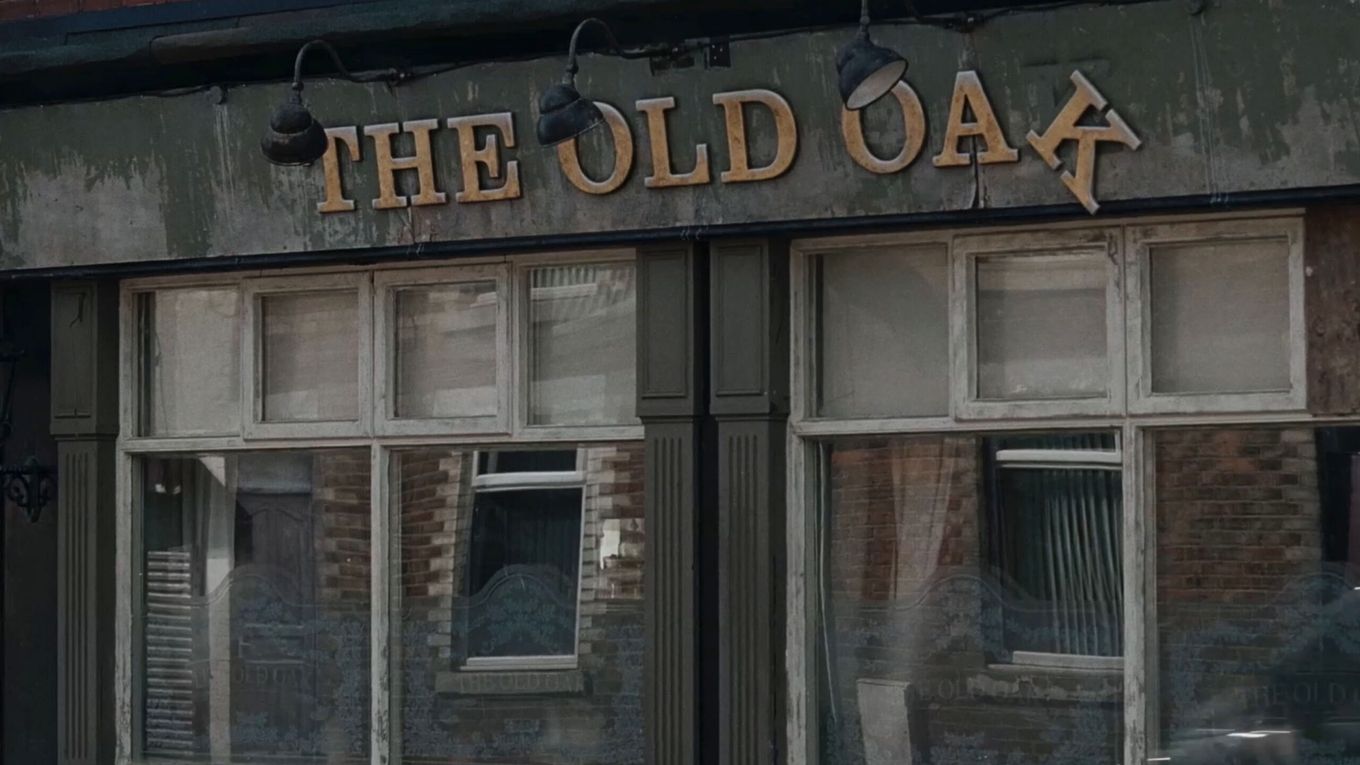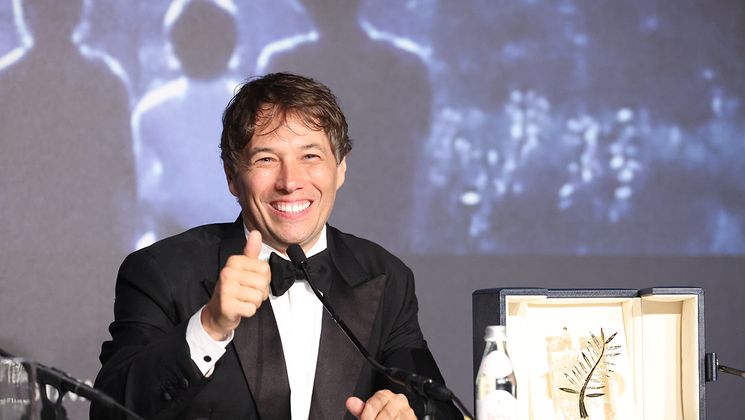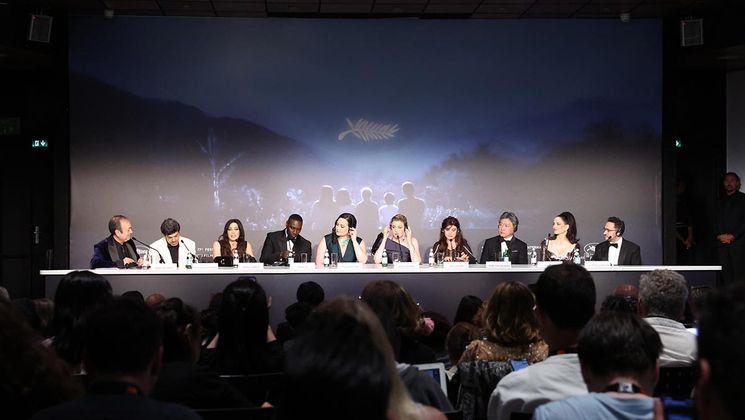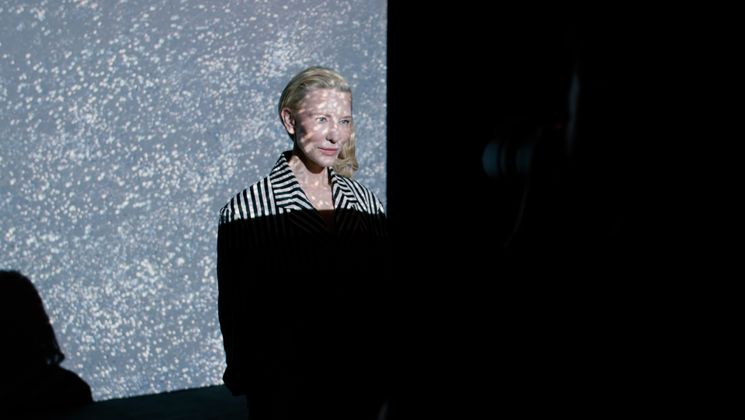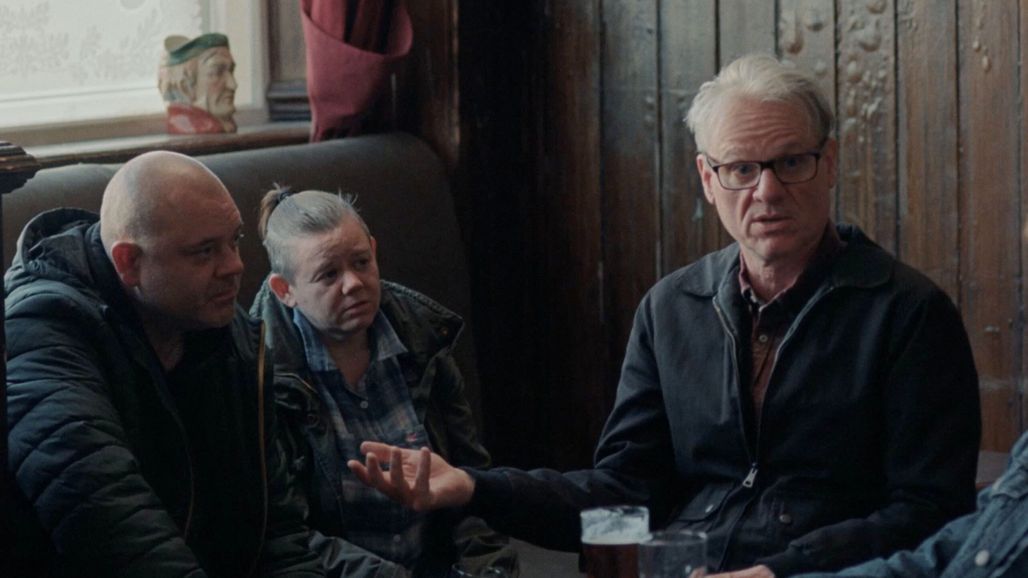
The Old Oak, the third politically engaged installment from Ken Loach and Paul Laverty

The fourteenth film In Competition for Ken Loach, twice winner of the Palme d’or for The Wind that Shakes the Barley (2006) and I, Daniel Blake (2016). At the age of 86, the filmmaker continues to denounce the infernal cynicism of the British administration, alongside Paul Laverty, his longtime screenwriter. At the centre of the story, The Old Oak,the last remaining pub of an old mining town of Northeastern England, which crystallizes all the problems of the city. TJ (Dave Turner), who runs the pub, strikes up a friendship with Yara (Ebla Mari), a young refugee from the war in Syria. An interview with Ken Loach and Paul Laverty.
Ken Loach
The film is about conflict, deprivation and alienation, from neglect, from the political people who run things, from poverty. It is an area of England in the Northeast, which is an old mining area where the mines closed. And the right wing party, the Tories, that closed the mines, were determined not only to close down the industry, but to destroy the communities. The area has just been neglected for the last 40 years. Although there’s still the spirit of the solidarity of the miners when they were there, there’s also dissatisfaction and lack of hope. And into that area comes placed refugees from the Syrian war who have all those negative feelings, plus the trauma of being in a war and placed somewhere where most of them don’t speak English. How do they cope and how do those two groups find a way of living together, and can they? It is how those interactions play out, really, with the film of us.
Paul Laverty
Yes, I think what’s fascinating as Ken mentioned it is, since the 1984 miner strike, many of these communities were forgotten, alienated. And when you go and visit them today, you’ll see they’ve lost everything that makes a town and a community work: the library, the church, the pub, the shops are boarded up. That is a great tragedy. There are lots and lots of communities in deep trouble, but, at the same time, we still have this great, glorious past that we manufacture for ourselves. So there’s lots of echoes of hope in this story. I hope there will be.
Ken Loach
Paul always writes complex characters. And the central location is the old pub, the public house, the bar in the centre of the village. And the man who runs it is someone who began as a miner, he was a militant, he worked to bring people together. And then he bought the pub, and as the village has fallen apart, so his hopes are receding. And he sees the wreckage around him and it’s very hard to sustain, to be optimistic in those circumstances. In a way, he’s a man resigned to a failing situation.
Paul Laverty
And I think there’s interest in, from our point of view, to how it connects up with our two previous films. It is actually key to understanding how we ended up in a world with I, Daniel Blake and Sorry We Missed You. How did we once have trade unions when there was coherent working class organisation, where there was health? How did that become the world of the app of Sorry We Missed You, where people are working twelve and 14 hours a day? How did that change in consciousness happen? How do we get to people like Daniel Blake, who is once a very competent workingman, and who is systematically abused by a bureaucratic system? That comes part of a policy. We have to go back again to look what happened in the world of The old Oak, and we’ll look back to 1984.That becomes almost poisoned by circumstances. And it’s to try and disentangle that and understand that. And I think there’s interest in, from our point of view, to how it connects up with our two previous films. It is actually key to understanding how we ended up in a world with I, Daniel Blake and Sorry We Missed You. How did we once have trade unions when there was coherent working class organisation, where there was health? How did that become the world of the app of Sorry We Missed You, where people are working twelve and 14 hours a day? How did that change in consciousness happen? How do we get to people like Daniel Blake, who is once a very competent workingman, and who is systematically abused by a bureaucratic system? That comes part of a policy. We have to go back again to look what happened in the world of The Old Oak, and we’ll look back to 1984. That becomes almost poisoned by circumstances. And it’s to try and disentangle that and understand that.
Ken Loach
With this film, we wanted to see how we could widen it: can we look at the notion of hope? And where do people find that? What nourishes people to build a decent life together?
